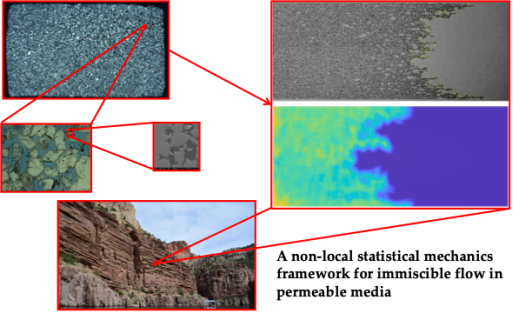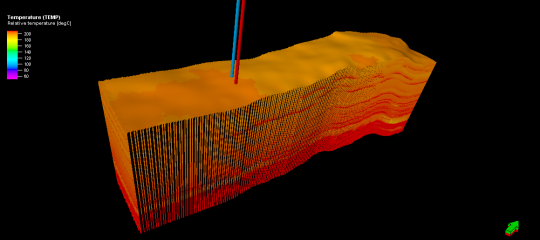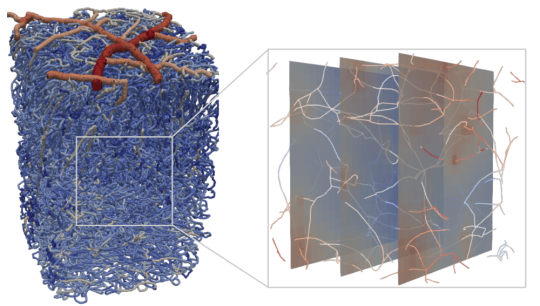
Join us for one of our Upcoming Academy Events
Sent on: 21-02-2026
PORE 3-9: A Non-Local Statistical Mechanics Framework for Immiscible Flow in Permeable Media
Time is running out to sign up for this course, which starts on March 4th! Access to safe and reliable large-scale geologic storage sites for CO2, H2 and natural gas is integral to energy transition. Efficient use of subsurface formations as storage sites requires reliable predictions of flow processes. In addition to the complexity and uncertainty associated with these systems, the severe predictive limitations of macroscale models of flow and transport adversely affect our ability to engineer subsurface systems reliably. This short course offers a statistical mechanics framework that is firmly grounded in the physics of multiphase flow in permeable media and incorporates non-locality considerations associated with the spatiotemporal scales of large-scale systems. Led by renowned experts Alex Hansen (Norwegian University of Science and Technology (NTNU) & ERC AGIPORE Project) and Saman Aryana (University of Wyoming, USA & University of New South Wales, Australia), this course will introduce students to nonlocality, fundamental scale considerations, and upscaling based on a statistical mechanics framework grounded in the physics of multiphase flow in porous media. 📅 Course Dates: March 4, 11, 18 & 25, 2025 |

|
PORE 3-2: Fundamentals of Geothermal Reservoir Engineering
This four-day course provides a comprehensive foundation in geothermal reservoir engineering, emphasizing both theory and practical applications. Participants will explore geothermal energy fundamentals, fluid and heat flow dynamics, multiphase systems, reservoir heterogeneity, and energy conversion. Advanced topics include Enhanced Geothermal Systems (EGS), closed-loop designs, oil and gas well conversions, thermal energy storage optimization, power plant efficiency calculations, and geothermal reserve estimation. The course will equip participants with the skills to address challenges in geothermal reservoir optimization and energy production through hands-on simulations using analytical and proxy models, and real-world case studies. This course will be lectured by Dr. Rita Esuru Okoroafor, an Assistant Professor at Texas A&M, specializing in low-carbon energy solutions. A former SPE Distinguished Lecturer and Principal Reservoir Engineer at SLB, she brings expertise in reservoir engineering, geothermal energy, and CO₂/H₂ storage. Don’t miss this opportunity! 📅 Course Dates: July 9, 10, 16 & 17 |

|
Webinar on "Stroke across scales – impact on blood perfusion and oxygen supply in the brain – a computational perspective"
Join us on April 1st at 16:00 CEST (Central European Summer Time) for an exciting talk on cerebral microcirculation and related processes with Franca Schmid, Group Leader at the ARTORG Center for Biomedical Engineering Research at the University of Bern, Switzerland. Microvascular disturbances are common during neurological disorders. These disturbances range from single capillary occlusions (microstroke) to the occlusion of a major feeding artery (ischemic stroke). Assessing the impact of such microvascular alterations experimentally is challenging, which poses a challenge to advancing our understanding of disease origins and treatment. Targeted computational model development is a promising tool to close this gap in knowledge. In the context of microstrokes, we use our bi-phasic blood flow model and our model for microvascular oxygen transport to show that microscale alterations matter for mesoscale blood and oxygen supply. The impact of vascular variability during ischemic stroke is addressed in our unique simulation framework, which directly incorporates structural and functional in vivo data from mouse experiments via inverse modeling. By highlighting the relevance of arterial flow loops during ischemic strokes, we propose that accounting for vascular variability in stroke treatments can be beneficial for stroke outcomes.
|

|
